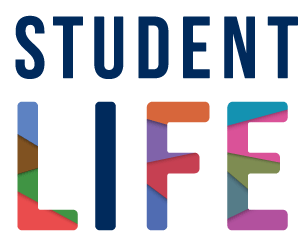Mindfulness
Podcasts and practices
- Listen to the MindFIT Podcast on Spotify and download the transcripts below:
- Making Meditation Inclusive through Anti-Ableism transcript (PDF)
- Decolonizing Wellness Approaches by Being Mindful transcript (PDF)
- Mindfulness, Neuroscience and Emotion transcript (PDF)
- Cultural Appropriation and Appreciative Knowledge transcript (PDF)
- Is this Spiritual? Mindfulness, Yoga and Spirituality transcript (PDF)
- Four Noble Truths and Eightfold Noble Path transcript (PDF)
- Better in Every Sense: The Surprising Relationship Between Sensation and Wellbeing transcript (PDF)
- Meditation as an Antidote to Stress transcript (PDF)
- Anti-Ableism in Mindfulness Facilitation transcript (PDF)
- How Buddhism travelled East to West transcript (PDF)
- Cultural Appropriation Panel transcript (PDF)
- Buddhist Roots of Mindfulness transcript (PDF)
- Guided Meditations by Dr. Susitna Banerjee of U of T
- Dr. John Vervaeke of U of T leads two practices from the Vipassana tradition: Finding Your Centre and Finding Your Roots
- Meditations and conversations by Mindful Moments facilitators
- Stretch, breath and relax. Scan through University College’s Instagram Reels @ucstudentlife for mindfulness-based practices facilitated by the Mindful Moments team.
- Guided meditations for teens
Videos
- U of T professors and staff introduce mindfulness and its applications
- Norman Farb from U of T draws from emerging behavioural and neuroimaging research to investigate mindfulness and well-being
- Sharon Salzberg on our relationship with pain and suffering
- Yoga, stretching and mindfulness breaks provided by U of T
- Self massages:
- Self massages with Yoga Tune Up balls
Books
University of Toronto Libraries has several of these books and many others. Some are available online.
- What Now; Mindfulness in your 20s and Beyond – Yael Shy
- The Mindful Twenty-Something: Life skills to handle stress…& everything else – Holly B. Rogers M.D.
- Wherever You Go There You Are – Jon Kabat-Zinn, PhD
- Mindful of Race – Ruth King
- Zen and the Art of Saving the Planet – Thich Nhat Hanh
- When Things Fall Apart: Heart Advice for Difficult Times – Pema Chodron
- Integrating Mindfulness into Anti-Oppression Pedagogy: Social Justice in Higher Education – Beth Berila
Research and academic articles
Hundreds of peer reviewed articles on mindfulness are published each year and available through University of Toronto Libraries. The articles below are examples of areas of research and discourse on the topic.
- Meta-analysis of research findings on the benefits of mindfulness.
- Association of Dispositional Mindfulness with Stress, Cortisol, and Well-Being Among University Undergraduate Students.
- Teaching meditation to college students within an historical and cultural context: A qualitative analysis of undergraduate reflections on contemplative practice.
Benefits of yoga in higher education
A selection of peer reviewed articles from 2013 – 2022.
- Effects of yoga in a physical education course on attention control and mental health among graduate students with high sensory processing sensitivity.
- A feasibility study of a program integrating mindfulness, yoga, positive psychology, and emotional intelligence in tertiary-level student musicians.
- The effect of hatha yoga intervention on students’ creative ability.
- The effects of yoga on student mental health: A randomised controlled trial.
- A randomized controlled trial of mindfulness versus yoga: Effects on depression and/or anxiety in college students.
- Mindfulness and emotion regulation: Promoting well-being during the transition to college.
- Yoga practice in a college sample: Associated changes in eating disorder, body image, and related factors over time.
- Effects of a single physical or mindfulness intervention on mood, attention, and executive functions: Results from two randomized controlled studies in university classes.
- Effect of laughter yoga on mental symptoms and salivary cortisol levels in first‐year nursing students: A randomized controlled trial.
- Comparing the psychological effects of meditation- and breathing-focused yoga practice in undergraduate students.
- Effect of a single session of a yogic meditation technique on cognitive performance in medical students: A randomized crossover trial.
- Mindfulness training for improving attention regulation in university students: Is it effective? and do yoga and homework matter?
Programs & courses at U of T
- Courses in the Buddhism, Psychology, and Mental Health Program (minor available)
- Master of Pastoral Studies (Buddhism focus)
- School of Continuing Studies mindfulness certificates and seminars
- CTL5042H Mindfulness in Education: Theory and Practice
Additional places to study mindfulness
- Centre for Mindfulness Studies (Toronto)
- A Mindful Society Conference
- The Center for Mindful Self-Compassion
Vipassana/Insight Meditation Centres
Vipassana is a Buddhist form of meditation that has many similarities to what we call mindfulness in North America, yet there are some important differences in the practices and the intended outcomes.
If you have a resource you would like to recommend for this list, please contact laurena.brown@utoronto.ca.





